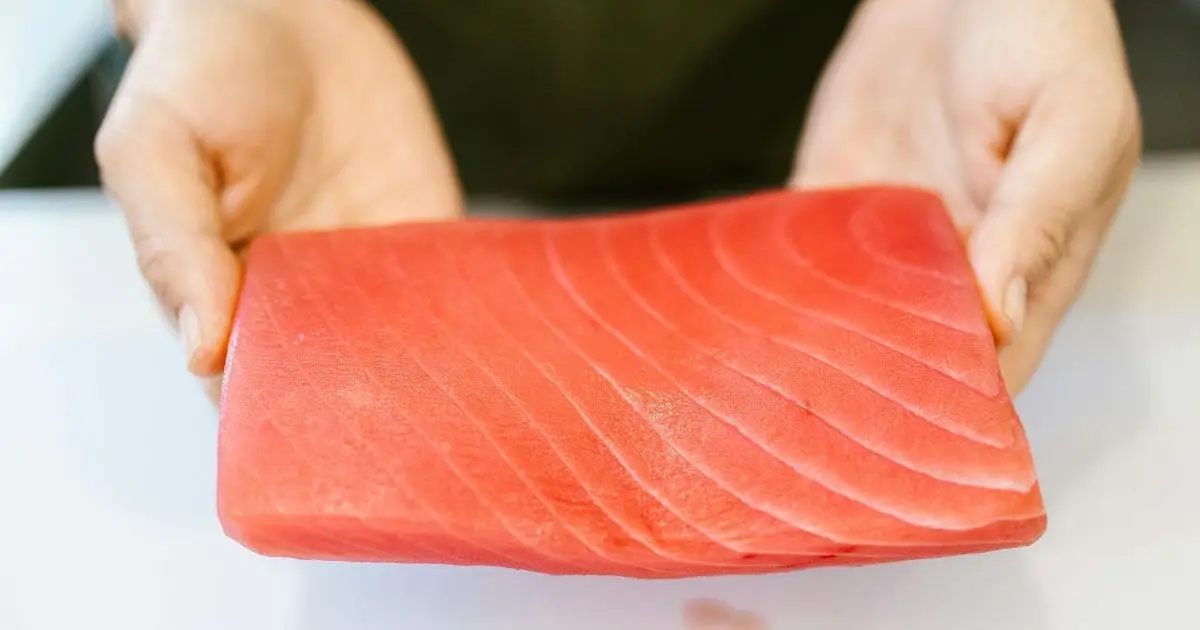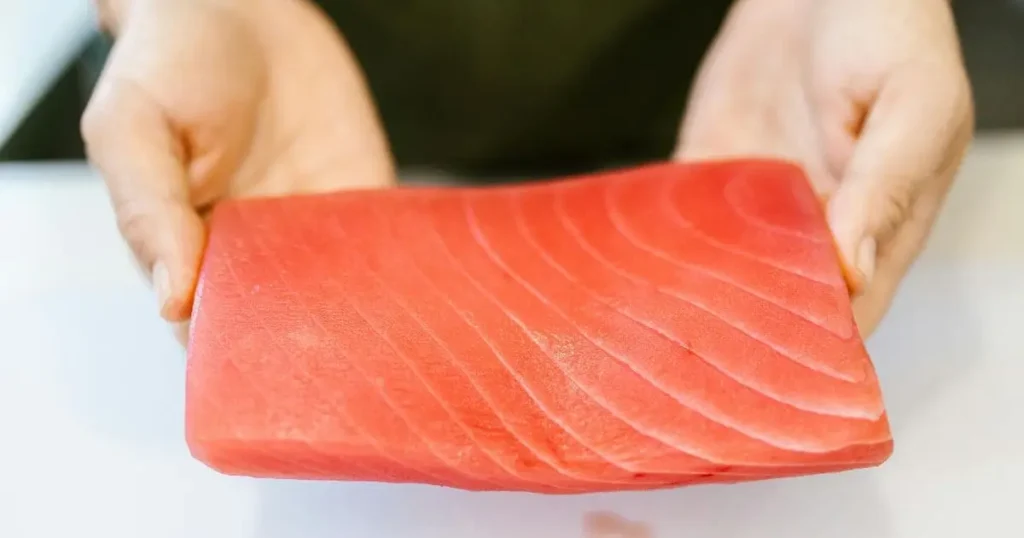Welcome to Loki & Nala Family

Table of Contents
Salmon is known for its rich nutritional value and is a favorite among many humans. But when it comes to our canine companions, some pet owners might wonder if salmon, specifically salmon skin, is safe for dogs. In this article, we’ll dive deep into the question: Can dogs eat salmon skin? We will cover important related topics to ensure you’re feeding your dog safely and healthily.
Can Dogs Eat Salmon Skin?
The simple answer is yes, dogs can eat salmon skin, but with some important caveats. Salmon skin is packed with Omega-3 fatty acids, which are beneficial for your dog’s coat, skin, and overall health. Omega-3s also support heart health, reduce inflammation, and can help improve cognitive function in older dogs.
However, it’s crucial to ensure that the salmon skin is properly cooked before serving it to your dog. Raw or undercooked salmon can contain harmful parasites, bacteria, or toxins that may make your dog seriously ill. As long as the skin is cooked thoroughly and prepared without harmful additives (such as salt, garlic, or onions), it can be a tasty and nutritious treat.
Is Salmon Good for Dogs?
Yes, salmon is an excellent source of high-quality protein and healthy fats. It’s particularly beneficial for dogs with sensitive stomachs or allergies to other protein sources like beef or chicken. The Omega-3 fatty acids found in salmon not only promote a shiny coat and healthy skin but also have anti-inflammatory properties that can help dogs suffering from conditions like arthritis.
In addition to Omega-3s, salmon provides essential vitamins and minerals, including:
- Vitamin D: supports bone health.
- Vitamin B12: Aids in red blood cell production and nerve function.
- Selenium helps boost the immune system.
Despite these benefits, salmon should be given in moderation. Feeding too much salmon can lead to weight gain due to its high-fat content, and there’s always the risk of salmon containing toxins like mercury if it’s sourced from polluted waters. It’s best to offer salmon as an occasional supplement to your dog’s regular diet rather than a daily meal.
Can Dogs Eat Raw Salmon?

No, dogs should not eat raw salmon. Raw or undercooked salmon can contain a parasite called Neorickettsia helminthoeca, which causes salmon poisoning disease in dogs. This can be a life-threatening condition if left untreated, leading to severe symptoms such as vomiting, diarrhea, fever, and even death. It’s important to note that freezing the salmon won’t necessarily kill all the parasites, so cooking it thoroughly is essential.
If your dog accidentally consumes raw salmon, it’s important to monitor them for symptoms and seek immediate veterinary care if any arise. The positive news is that salmon poisoning disease is treatable if caught early, but prevention is always better than cure.
Is canned salmon good for dogs?
Canned salmon can be a healthy option for dogs as long as you choose the right type. Look for canned salmon packed in water without added salt, as excessive sodium can lead to dehydration or sodium poisoning in dogs. Some canned salmon products may also contain additives or preservatives, so always check the label to ensure it’s safe for your furry friend.
Canned salmon offers similar nutritional benefits to fresh or cooked salmon, packed with Omega-3 fatty acids, protein, and essential vitamins. However, since it’s processed, canned salmon should also be given in moderation to avoid any digestive upset or potential long-term health issues associated with processed foods.
Tips for safely giving salmon to your dog
If you’re interested in introducing salmon into your dog’s diet, there are a few important safety tips to keep in mind:
- Always Cook the Salmon: Whether it’s fresh or frozen, salmon should always be cooked thoroughly to eliminate any potential parasites or harmful bacteria. Avoid seasoning the salmon with any spices or ingredients that are toxic to dogs, such as garlic, onions, or excessive salt.
- Avoid fish bones: Salmon bones are small and brittle, making them a choking hazard for dogs. They can potentially harm your dog’s internal organs if ingested. Always remove all bones before feeding salmon or salmon skin to your dog.
- Serve in Moderation: While salmon is nutritious, too much can lead to an upset stomach or other issues like obesity. As a general guideline, salmon should make up no more than 10% of your dog’s overall diet.
- Opt for Wild-Caught Salmon: Whenever possible, choose wild-caught salmon over farmed varieties. Wild-caught salmon tends to have fewer toxins, lower mercury levels and is generally healthier for your dog.
- Watch for Allergies: Some dogs may be allergic to fish, including salmon. After introducing salmon into your dog’s diet, monitor them for any signs of an allergic reaction, such as itching, swelling, or gastrointestinal distress.
Benefits of feeding salmon to dogs
Salmon is a powerhouse of nutrition that can offer numerous health benefits to dogs. Here’s a quick overview of why incorporating salmon into your dog’s diet (in moderation) can be a beneficial idea:
- Improved Coat and Skin Health: Omega-3 fatty acids help keep your dog’s coat shiny and skin moisturized. They also reduce shedding and dandruff.
- Boosted Immune System: The vitamins and minerals found in salmon, like Vitamin D and selenium, can strengthen your dog’s immune system, helping them ward off illnesses.
- Reduced Inflammation: Omega-3s are known for their anti-inflammatory properties, which can benefit dogs with arthritis or joint pain.
- Cognitive Support: Older dogs, in particular, may benefit from the brain-boosting properties of Omega-3 fatty acids, which can help with cognitive function.
Conclusion: Should You Feed Your Dog Salmon Skin?
Salmon skin can be a healthy and tasty treat for your dog, but it’s essential to serve it safely. Cook the skin thoroughly, avoid harmful seasonings, and remove any bones before offering it to your dog. Additionally, salmon in all forms—fresh, cooked, or canned (without salt)—can provide a range of health benefits when fed in moderation.
Remember to avoid raw salmon due to the risk of parasites and toxins, and always consult with your veterinarian if you’re unsure whether salmon is a good fit for your dog’s specific dietary needs. With the right precautions, salmon can be a nutritious addition to your dog’s diet, helping them enjoy better health and a shinier coat!
By ensuring you follow these guidelines, you can confidently share this delicious fish with your furry companion, knowing you’re supporting their overall health and well-being.









